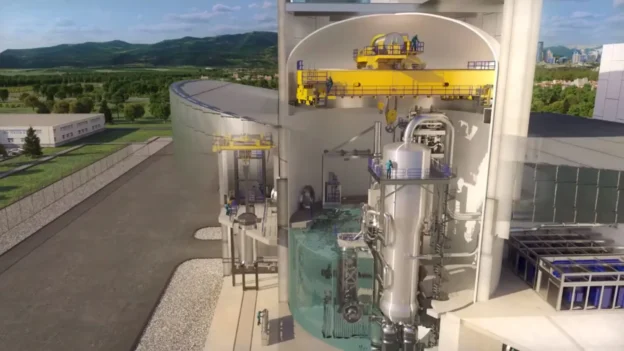A group of researchers at the Massachusetts Institute of Technology(MIT) have issued a serious warning regarding the use of HALEU (High-Assay Low-Enriched Uranium) fuel, designed for new types of nuclear reactors, such as small modular reactors(SMRs).
The risk in the use of HALEU fuels
They argue the great risk the HALEU fuel would pose, being used directly in the construction of nuclear weapons. The research, published in the journal Science The research, published in the journal Science, states that the practical limit for nuclear weapons-grade material has been set too low.
For example, in conventional nuclear reactors, the fuel is enriched with up to 5% uranium-235. Once the isotope mixture exceeds 20% of 235U, it is classified as highly enriched uranium(HEU), internationally recognized as suitable for nuclear weapons. However, MIT researchers argue that uranium with 10-12% enrichment should be considered as dangerous as HEU. They also point out that the fuel from a single SMR could be enough to build a nuclear bomb more powerful than the one used at Hiroshima.
Governments have shown great interest in HALEU, allocating billions in funding for its development. Earlier this year, the British government specifically mentioned this type of fuel in its roadmap for power generation. They also warn that neither governments nor other advocates have adequately considered the risk that this weapons-grade material could fall into the hands of terrorist organizations, undermining decades of efforts to prevent the proliferation of nuclear weapons.
HALEU International Production
HALEU is not only intended for SMRs. For example, the U.S. Department of Defense has entered into an agreement with Lockheed Martin to develop and build an experimental rocket with nuclear thermal propulsion. nuclear thermal propulsion using HALEU provided by the U.S. Department of Energy. In addition, the U.S. government has commissioned BWX Technologies and X-energy to develop a transportable nuclear microreactor, using HALEU fuel with tri-structural-isotropic (triso) cladding.
Currently, only China and Russia have the capacity to produce HALEU. The UK plans to have production operational by the early 2030s at Urenco’s Capenhurst facility near Liverpool. The International Association of Physicians for the Prevention of Nuclear War has expressed concern about plans to produce more highly enriched and more compact nuclear fuel, which could also be used for military purposes. This organization has urged the German government to prevent Urenco’s subsidiaries from participating in these projects.
Follow us on social networks and don’t miss any of our publications!
YouTube LinkedIn Facebook Instagram X
Source: MIT
Photo: Westinghouse

